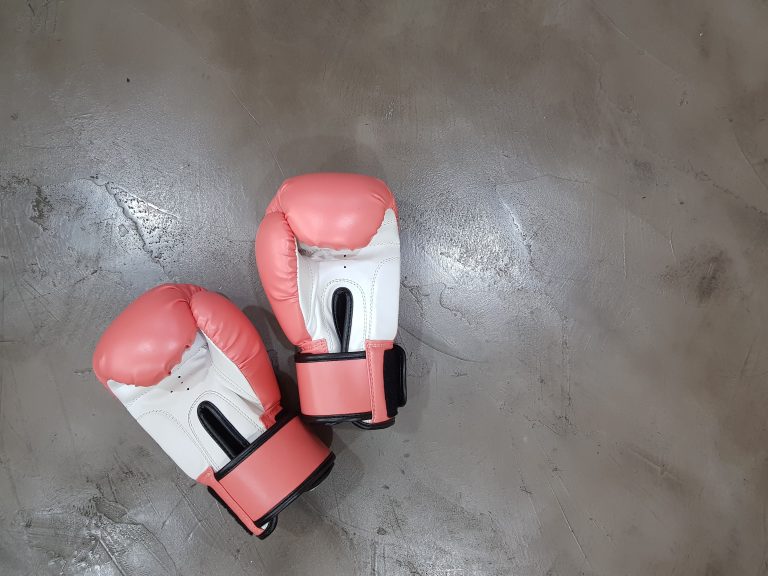What Happens at Karate Grading?
Karate, like most martial arts, is more than just learning kicks and punches. It is a discipline that teaches self-control, respect, and perseverance. A major aspect of training in any martial art is grading, where students are promoted to the next level after demonstrating their skills in front of their instructors and peers. In karate, grading is not only a test of physical ability but also a measure of one’s character and mental toughness. In this article, we will explore what happens at a karate grading and what students can expect.
What is Karate Grading?
Karate grading is a system of evaluating and promoting students to higher levels of skill and knowledge. Gradings usually occur every few months, depending on the school or organization, and typically involve a series of tests that students must pass to advance to the next level. The tests are designed to assess a student’s proficiency in various aspects of karate, such as basics, katas, sparring, and self-defense. Depending on the level being tested, students may have to perform different types of techniques, including punches, kicks, blocks, throws, and joint locks.
How is Karate Grading Structured?
The structure of karate grading varies depending on the school or organization, but generally follows a similar format. Gradings usually start with a group warm-up to prepare students physically and mentally for the challenges ahead. In some schools, students may be asked to demonstrate their knowledge of Japanese terminology, such as the names of techniques and stances, before the grading begins.
The tests themselves are typically conducted in front of a grading panel that consists of higher-ranked instructors or black belts. Depending on the level being tested, students may have to perform techniques individually or in pairs. For example, lower-level gradings may involve doing basic punches or kicks, whereas higher-level gradings may require students to perform advanced techniques, such as kata, which is a sequence of prearranged movements that simulates a fight against imaginary opponents.
As students progress through the grading, the requirements become more challenging, and the panel may ask them to perform more complicated techniques. In addition to physical skills, gradings also assess a student’s mental and emotional state. For example, students may be required to perform techniques under pressure or while being corrected by the panel, which tests their ability to stay focused and composed under stress.
What Happens After Karate Grading?
After the grading, the panel deliberates and decides whether each student has passed or failed. In some cases, a student may not pass and may have to wait until the next grading to try again. In other cases, students may pass but not be promoted to the next level if the panel judges that their performance was not up to the required standard.
For those who do pass and are promoted to the next level, there is usually a ceremony where the students are presented with their new belts and certificates. This ceremony is an opportunity for students to reflect on their achievements and receive recognition for their hard work and dedication. It also marks the beginning of a new journey towards higher levels of skill and knowledge.
Tips for Preparing for Karate Grading
Preparing for a karate grading can be a challenging experience, but there are some things that students can do to ensure they are well-prepared. Here are some tips:
Practice Consistently
Consistent practice is key to building a strong foundation of skills that will serve you well in karate gradings. Make sure to attend classes regularly and practice at home to develop muscle memory and improve your technique.
Focus on Basics
Basics are the foundation of karate, and mastering them is essential for success in gradings. Make sure you know the proper form for punches, kicks, and stances, and practice them until they become second nature.
Understand the Requirements
Before the grading, make sure you understand the requirements for your level. Talk to your instructor and review the grading syllabus to ensure you are familiar with the techniques and skills you will be tested on.
Practice Under Pressure
Karate gradings can be stressful, and it’s important to practice techniques under pressure to prepare yourself mentally and emotionally. Ask your instructor or training partner to provide feedback and corrections while you’re practicing to simulate the grading environment.
Stay Positive
Finally, it’s important to stay positive and have confidence in yourself. Remember that gradings are a measure of your progress, not a judgment of your character or worth. Stay focused, do your best, and enjoy the experience.
What Happens at Karate Grading: Answering the Most Frequently Asked Questions
Karate is a popular martial art that originated in Japan in the early 20th century. Practitioners of this discipline undergo a series of exams or tests, known as gradings, in order to progress to higher levels of technique and skill. If you’re planning to attend a karate grading, you may have questions about what to expect. In this article, we’ll be answering some of the most frequently asked questions regarding what happens at karate grading.
What is Karate Grading?
Karate grading is a formal evaluation process where a student is assessed by an examiner or a panel of examiners. The assessment is based on the student’s proficiency level in a specific set of techniques, and their ability to demonstrate these techniques in a controlled environment.
How Often Do Karate Grading Tests Occur?
Karate grading tests are typically held at regular intervals, with the time between exams varying depending on the style and school of karate. In some schools, grading tests may be held every three months, while in others, they may occur only twice a year. It’s essential to consult with your instructor or coach to find out the grading schedule for your school.
What Are the Belts in Karate?
Karate grading is usually marked by the awarding of a new belt color representing the student’s level of skill and proficiency. The different belt levels vary depending on the style and school of karate, but the following is the most common rank order of karate belts:
– White belt
– Yellow belt
– Orange belt
– Green belt
– Blue belt
– Purple belt
– Brown belt
– Black belt
What Happens During a Karate Grading?
The structure and procedures of a karate grading test will depend on the style and school of karate, but some general elements are present in most karate gradings. For example:
– Warm-up: Before the test starts, students will usually perform a warm-up to get their muscles ready for the testing.
– Demonstrations of technique: Students will be called upon to demonstrate various techniques, such as kicks, punches, blocks, and combinations, in accordance with their level of skill.
– Kata: Students will be asked to perform a predetermined series of choreographed movements known as kata. This is a vital part of karate grading because it tests the student’s ability to understand the movements and apply them correctly.
– Kumite: Kumite refers to the sparring exercise that assesses a student’s ability to apply techniques under a competitive environment.
What Happens After the Grading?
After the grading, the examining panel usually goes into a private session to determine if each student has passed the examination and if they are qualified for the next level of training. If the student has passed the test, they will be awarded the next color belt, typically on the same day as the grading. If the student failed the examination, they will likely have the opportunity to retake the test at a later date.
What Can I Do to Prepare for a Karate Grading?
To prepare for a karate grading, it’s essential to practice consistently and diligently. You should review and practice the techniques and kata appropriate to your level. Additionally, it’s essential to stay healthy and make sure you’re in good physical condition. Finally, it’s crucial to have a positive attitude and have faith in your abilities; this will go a long way in helping you achieve success.
In
What is karate grading?
Karate grading is a process that martial arts practitioners undergo to test their proficiency and advancement within the martial arts system. It involves a series of tests designed to assess the individual’s mastery of specific techniques and skills required for each level of the martial arts system.
What Happens Before the Grading?
Before the grading, martial arts practitioners typically undergo months of rigorous training and practice in preparation for the test. They are expected to have a comprehensive knowledge of the specific techniques and skills required for their level of advancement. Students are also encouraged to attend seminars and training camps to refine their skills and learn new techniques.
What Happens During the Grading?
During the grading, martial arts students will perform a series of predetermined techniques and skills in front of a panel of judges or instructors. The panel will evaluate each student’s performance and assess their proficiency in the required techniques. Grading typically involves a combination of forms, sparring, and self-defense techniques.
What are the levels of karate grading?
The grading system varies depending on the martial arts school, but typically students will advance through a series of belts or rankings. Beginners usually start with a white belt and work their way up to higher rankings, such as yellow, orange, green, blue, brown, and black. Each level has a specific set of requirements that must be met before the student can advance to the next level.
What happens after the grading?
After the grading, students are typically awarded their new belt or ranking based on their performance. Students who do not meet the required standards may be asked to repeat the grading or continue training until they are ready to advance. Once a student has achieved a black belt, they may continue to advance within the martial arts system by pursuing higher degrees or ranking.
What are the benefits of karate grading?
Karate grading provides several benefits for martial arts students. It helps to increase their self-confidence, demonstrate their skill level, and acknowledge their hard work and dedication to the martial arts system. Grading also gives students a clear path for advancement within the system, motivating them to continue training and improving their skills.
Conclusion
Karate grading is an essential component of the martial arts system. It provides an opportunity for students to demonstrate their proficiency and advancement within the system, motivating them to continue training and refining their skills. Martial arts practitioners should embrace the grading process as an opportunity to grow and learn, rather than as a daunting challenge.
Inhaltsverzeichnis






